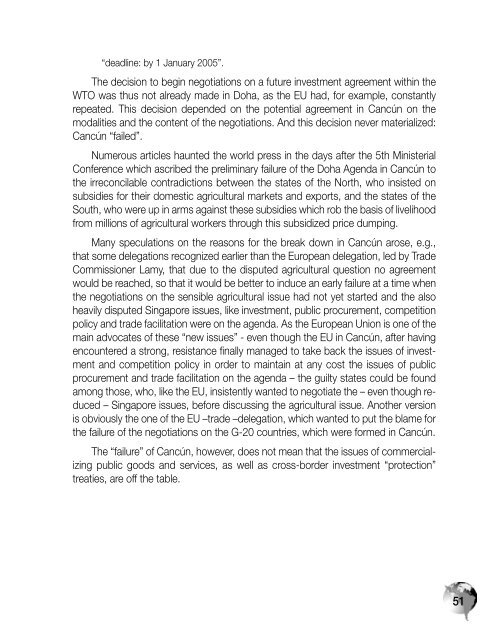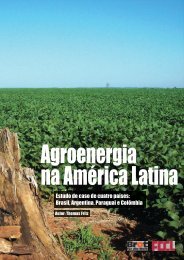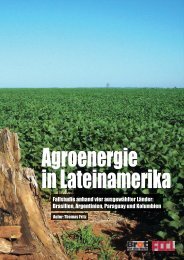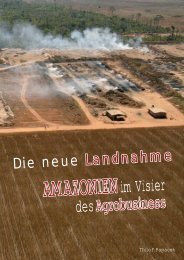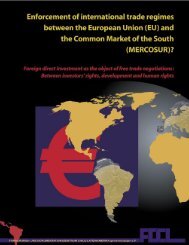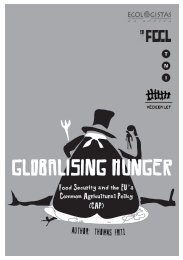Download - FDCL
Download - FDCL
Download - FDCL
You also want an ePaper? Increase the reach of your titles
YUMPU automatically turns print PDFs into web optimized ePapers that Google loves.
“deadline: by 1 January 2005”.<br />
The decision to begin negotiations on a future investment agreement within the<br />
WTO was thus not already made in Doha, as the EU had, for example, constantly<br />
repeated. This decision depended on the potential agreement in Cancún on the<br />
modalities and the content of the negotiations. And this decision never materialized:<br />
Cancún “failed”.<br />
Numerous articles haunted the world press in the days after the 5th Ministerial<br />
Conference which ascribed the preliminary failure of the Doha Agenda in Cancún to<br />
the irreconcilable contradictions between the states of the North, who insisted on<br />
subsidies for their domestic agricultural markets and exports, and the states of the<br />
South, who were up in arms against these subsidies which rob the basis of livelihood<br />
from millions of agricultural workers through this subsidized price dumping.<br />
Many speculations on the reasons for the break down in Cancún arose, e.g.,<br />
that some delegations recognized earlier than the European delegation, led by Trade<br />
Commissioner Lamy, that due to the disputed agricultural question no agreement<br />
would be reached, so that it would be better to induce an early failure at a time when<br />
the negotiations on the sensible agricultural issue had not yet started and the also<br />
heavily disputed Singapore issues, like investment, public procurement, competition<br />
policy and trade facilitation were on the agenda. As the European Union is one of the<br />
main advocates of these “new issues” - even though the EU in Cancún, after having<br />
encountered a strong, resistance finally managed to take back the issues of investment<br />
and competition policy in order to maintain at any cost the issues of public<br />
procurement and trade facilitation on the agenda – the guilty states could be found<br />
among those, who, like the EU, insistently wanted to negotiate the – even though reduced<br />
– Singapore issues, before discussing the agricultural issue. Another version<br />
is obviously the one of the EU –trade –delegation, which wanted to put the blame for<br />
the failure of the negotiations on the G-20 countries, which were formed in Cancún.<br />
The “failure” of Cancún, however, does not mean that the issues of commercializing<br />
public goods and services, as well as cross-border investment “protection”<br />
treaties, are off the table.<br />
51


